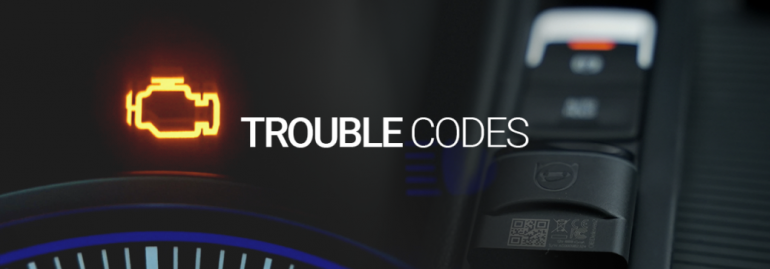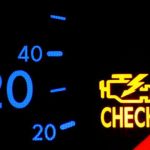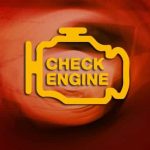In the complex world of automotive diagnostics, the dreaded check engine light has become a constant source of frustration for car owners. This small yet significant indicator serves as an alarm that something is amiss under the hood, but what happens when it comes to passing your vehicle’s mandatory inspection?
Decoding this dilemma requires a deep understanding of how resetting the check engine light can influence inspection results and potentially mask underlying issues.
In this article, we will delve into the intricacies of this process and shed light on its broader implications for both car owners and regulatory authorities alike.
The Function of the Check Engine Light in Vehicle Inspections
The check engine light serves an important function in vehicle inspections.
- Indicator for potential issues: When the check engine light illuminates, it indicates that there may be a problem with the vehicle’s systems or components. It is designed to alert drivers and technicians about potential issues that need attention.
- Diagnostic tool: The check engine light is connected to the onboard diagnostic system (OBD) of a vehicle. This system monitors various sensors and processes data to identify any malfunctions or abnormalities. When the light comes on, it triggers error codes that can be read using specialized diagnostic equipment to pinpoint specific problems.
- Impact on inspection results: During vehicle inspections, if the check engine light is illuminated, it usually results in an automatic failure. This is because it signifies an unresolved issue that could potentially affect the performance, safety, or emissions of the vehicle.
It is crucial for drivers to have any underlying problems addressed before resetting the check engine light and attempting an inspection. Resetting the light without fixing the underlying issue may only temporarily hide potential problems and could lead to further complications down-the-line
Resetting the Check Engine Light: Is it Ethical?
When it comes to resetting the check engine light, ethics come into play. Here are a few key points to consider:
- Resetting may mask underlying issues: Resetting the check engine light without addressing the underlying problem is like putting a band-aid on a deep wound. It may temporarily hide the issue but doesn’t solve it in any way. This can be seen as unethical because it could potentially put others at risk if there is an undiagnosed issue with the vehicle.
- Deception during inspections: Some individuals reset their check engine lights before going for inspections, hoping that they will pass unnoticed without having to fix any problems. This practice raises ethical concerns since inspection results should reflect the true condition of the vehicle and ensure safety standards are met.
- Infringing manufacturer recommendations: Many automakers advise against resetting check engine light codes without diagnosing and fixing what triggered them initially. Doing so contradicts these recommendations and could violate agreements made when purchasing or leasing vehicles[^1^].
Ultimately, choosing whether or not to reset your check engine light requires consideration of both legal requirements and ethical principles concerning public safety and honesty towards potential buyers or inspectors checking your vehicle’s condition.
[ ^1^ ] “Decoding The Dilemma: Resetting The Check Engine Light And Its Impact On Inspection Results”.
Uncovering Hidden Issues: The Consequences of Resetting the Check Engine Light
The Consequences of Resetting the Check Engine Light
1. False sense of security
Resetting the check engine light can give drivers a false sense of security, leading them to believe that any issues with their vehicle have been resolved. However, this is not always the case. By resetting the light without addressing underlying problems, drivers may unknowingly continue driving a vehicle that is still in need of repair or maintenance.
2. Potential for increased damage and expenses
When the check engine light illuminates, it serves as an indicator that there may be a problem with the vehicle’s systems or components. Ignoring these warning signs and simply resetting the light can lead to further damage and potentially more expensive repairs down the line. By ignoring potential issues instead of addressing them promptly, drivers run the risk of causing irreversible damage to their vehicles.
3. Impact on inspection results
Resetting the check engine light prior to undergoing vehicle inspections can also have consequences in terms of compliance and safety measures. In many states, if your vehicle’s onboard diagnostics (OBD) system shows evidence of being recently reset before an inspection takes place, it will automatically fail due to incomplete readiness codes being displayed on testing equipment.
The Impact of Resetting the Check Engine Light on Vehicle Safety
Resetting the check engine light without addressing the underlying issue can lead to potential safety hazards. Ignoring a warning sign from the check engine light can result in mechanical failures or malfunctions that may compromise the vehicle’s performance and endanger both drivers and passengers.
Here are a few key points to consider:
- False sense of security: By clearing the check engine light, it may give drivers a false impression that their vehicle is in good condition when there could be serious underlying issues that need attention.
- Missed maintenance opportunities: Resetting the light without diagnosing and fixing the problem means missing out on necessary maintenance or repairs that could prevent more significant problems down the road.
- Increased emissions: If an emission-related malfunction triggered the check engine light, resetting it before resolving this issue might allow harmful pollutants to continue being released into the environment.
Properly identifying and resolving any problems indicated by an illuminated check engine light is crucial for promoting vehicle safety and maintaining optimal performance. Your best course of action is to consult with a qualified mechanic who can diagnose and fix any issues correctly.






